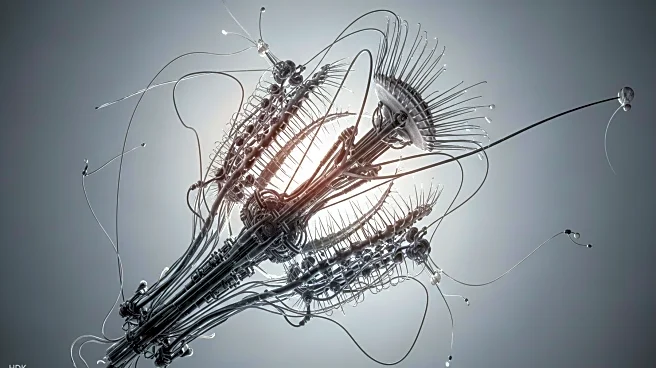What is the story about?
What's Happening?
Japanese scientists have uncovered the molecular mechanism that triggers the Venus flytrap's rapid response to touch, a discovery published in Nature Communications. The Venus flytrap, known for its ability to trap insects using sensitive trigger hairs, sends electrical impulses when these hairs are bent by pressure. This mechanism allows the plant to distinguish between prey and non-prey items. The research builds on previous findings that the plant can 'count' touches to confirm the presence of prey. The study involved genetically altering the plant to track calcium concentrations, which serve as a short-term memory system for the flytrap.
Why It's Important?
Understanding the Venus flytrap's mechanism offers insights into plant sensory systems and their evolutionary adaptations. This research could have broader implications for bioengineering and robotics, where mimicking natural sensory systems can lead to advancements in technology. The ability to map and manipulate plant signaling pathways may also contribute to agricultural innovations, enhancing crop resilience and efficiency. Furthermore, this study highlights the potential for interdisciplinary research combining biology and technology to solve complex scientific questions.
What's Next?
Future research may focus on further elucidating the relationship between calcium concentrations and the plant's electrical network. Scientists could explore applications of this knowledge in developing bio-inspired sensors and devices. Additionally, there may be interest in investigating other carnivorous plants to see if similar mechanisms exist, potentially leading to a broader understanding of plant sensory systems.
Beyond the Headlines
The ethical implications of genetic modification in plants, even for research purposes, continue to be a topic of discussion. As scientists manipulate plant genetics, considerations around biodiversity and ecological impact must be addressed. This research also raises questions about the potential for using plant-based systems in technology, which could lead to new ethical and legal challenges.

















